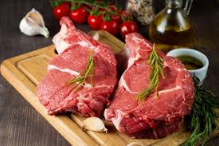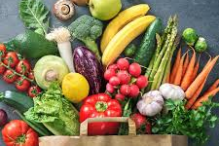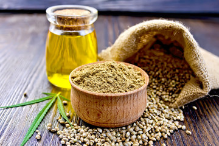
Kosher food is essentially food that does not have any non-kosher ingredients. What makes something kosher is that meat and milk products are not mixed together, animal products from non-kosher animals (like pork, shellfish, and others) are not included. There are a number of other requirements that need to be met, both in the process of food preparation and who performs the process (see the glossary below for some examples).
Nowadays, because of the complexity of the kosher requirements and mode food production, kosher certification is needed to check that all the criteria for kosher have been met (leading to the misconception that the food needs to be “blessed by a rabbi”).
Kosher level is indicated by a symbol printed on the package representing an agency’s certification. There are hundreds of Kosher certification agencies in the U.S.
Kosher food is not just for the religious- the vast majority of customers of kosher products buy it for other reasons- whether because they want gluten-free, halal, or just because kosher food is seen as high quality.
The majority of kosher food sales are not to kosher-observant Jewish consumers! Other religious denominations take advantage of overlapping dietary restrictions, like halal, or Christian sects like Seventh Day Adventists that avoid pork. Gluten-free and other special diets work well with Passover grain-free food items. Vegetarians can feel certain that their dairy products are meat-free. General consumers buy kosher products with a higher level of comfort and trust.

Kosher Foods that are not made from wheat, barley, rye, oats, spelt or their derivatives, or that have not been baked for more than 18 minutes.

Only meat from a glatt animal can be kosher. A glatt animal is one with no adhesions on the outside of its lungs.

Dairy/Milk free. Can be consumed at the same time as meat or dairy.

(HEKH-sher) A rabbinical supervision certifying an item Kosher according to their standard.

A religious person supervising the production and handling of food to ensure that Kosher regulations are being met.

Dairy products which derive from milk that have been milked under the supervision of an observant Jew.

Grain products that were cooked or baked with the participation of an observant Jew.

Grains are yoshon if they took root prior to Passover and can then be consumed according to this law. New grains from the spring crop after Passover are called Chodosh and can’t be eaten until the following year, according to this standard.

Wine or grape juice that has been heated to a certain temperature, which allows it to be poured by non-Jews.